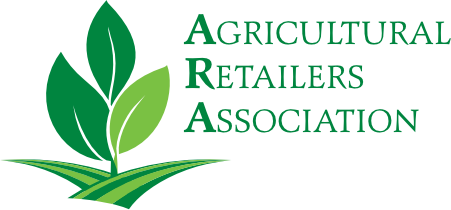Penn State Research Demonstrates Significant Increase in Feed Efficiency with Unique Corn Silage
Dec 03 2019
DOWNERS GROVE, Ill., USA, Dec. 3, 2019 – Research by Penn State University found a 4% increase (6% increase uncorrected) in ECM feed efficiency with Enogen® Feed corn silage – with no negative effect on rumen fermentation.1 The unique Syngenta hybrids, available from NK Seeds retailers, feature an in-seed technology that converts starch to usable sugars more quickly than other corn.
The research, results of which were presented at the 2019 American Dairy Science Association (ADSA) Northeast Branch meeting in November, was conducted by Sergio Welchez, graduate research assistant, and Dr. Alex Hristov of Penn State University’s Department of Animal Science. In their replicated experiment, they compared Enogen Feed corn silage to non-Enogen corn silage. The only difference in feed was the type of corn silage used, so the results indicate the effect of the in-seed alpha amylase technology of Enogen Feed corn.
“This data further confirms results seen in extensive research at several universities and commercial trials,” said Eileen Watson, Ph.D., Enogen development specialist. “On average, we’ve found that Enogen Feed corn fed as grain or silage may increase feed efficiency by about 5% compared to corn without the Enogen trait.”
The Penn State research supports what dairy producers are seeing in their own operations. On-farm results demonstrate that Enogen Feed corn hybrids deliver a new level of starch digestibility in ruminants, whether fed as grain or silage.
“Good corn silage is about 35 percent starch on a dry matter basis,” said Duane Martin, Ph.D., head of marketing for Enogen, Syngenta. “Enogen Feed corn hybrids convert starch to useable sugars more quickly and efficiently than other corn. This results in more available energy and improved feed efficiency, which can lower feed costs and improve profit potential in livestock operations.”
In addition to feed efficiency benefits, Enogen Feed corn hybrids stand and yield with the best elite corn hybrids, helping dairy producers gain efficiencies in the field as well as in dairy operations.2
“If you are a dairy producer growing your own feed, a simple switch in your corn hybrid may help increase the feed value of the silage in your ration,” said Joe Bollman, NK® corn product manager. “Enogen Feed corn hybrids are proven, high-yielding hybrids with the traits you need to protect yield potential. And, there are no additional management challenges, unlike some silage-specific hybrids.”
Enogen Feed hybrids are available from NK retailers in select geographies.3
Enogen Feed corn is the direct result of a Syngenta commitment to accelerate innovation that addresses increasing challenges across agriculture and the environment. Syngenta is investing in technologies that matter to bring about positive, lasting change for more sustainable agriculture.
For more information, contact a local NK retailer or visit www.EnogenFeed.com.
Join the conversation online – connect with Syngenta at Syngenta-us.com/social.
1 Penn State University Research Study, 2019.
2 Syngenta production data, 2012-2018.
3 Growers must comply with specific yet simple stewardship requirements.
About Syngenta
Syngenta is one of the world’s leading agriculture companies. Our ambition is to help safely feed the world while taking care of the planet. We aim to improve the sustainability, quality and safety of agriculture with world class science and innovative crop solutions. Our technologies enable millions of farmers around the world to make better use of limited agricultural resources. With 28,000 people in more than 90 countries we are working to transform how crops are grown. Through partnerships, collaboration and The Good Growth Plan we are committed to improving farm productivity, rescuing land from degradation, enhancing biodiversity and revitalizing rural communities. To learn more visit www.syngenta.com and www.goodgrowthplan.com. Follow us on Twitter at www.twitter.com/Syngenta and www.twitter.com/SyngentaUS.
# # #
Media Contacts:
Kelsey Hart
331.220.5756
Molly Schorsch
312.648.6700
mschorsch@gscommunications.com
Web Resources:
Cautionary Statement Regarding Forward-Looking Statements
This document may contain forward-looking statements, which can be identified by terminology such as ‘expect’, ‘would’, ‘will’, ‘potential’, ‘plans’, ‘prospects’, ‘estimated’, ‘aiming’, ‘on track’ and similar expressions. Such statements may be subject to risks and uncertainties that could cause the actual results to differ materially from these statements. For Syngenta, such risks and uncertainties include risks relating to legal proceedings, regulatory approvals, new product development, increasing competition, customer credit risk, general economic and market conditions, compliance and remediation, intellectual property rights, implementation of organizational changes, impairment of intangible assets, consumer perceptions of genetically modified crops and organisms or crop protection chemicals, climatic variations, fluctuations in exchange rates and/or commodity prices, single source supply arrangements, political uncertainty, natural disasters, and breaches of data security or other disruptions of information technology. Syngenta assumes no obligation to update forward-looking statements to reflect actual results, changed assumptions or other factors.
©2019 Syngenta, 2001 Butterfield Road, Suite 1600, Downers Grove, IL 60515. The trademarks or service marks displayed or otherwise used herein are the property of a Syngenta Group Company. All other trademarks are the property of their respective owners.
